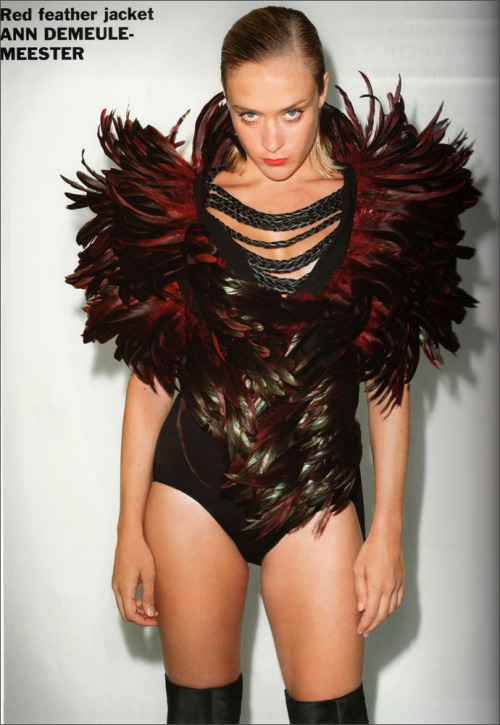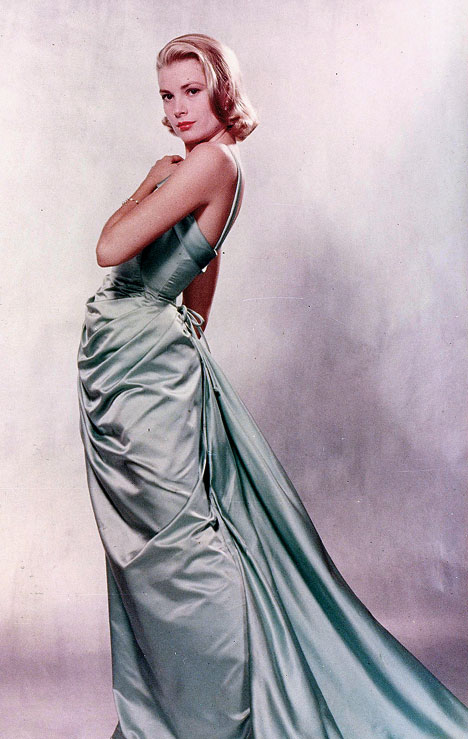
"She needs to quit."
That's how the discussion got kicked off on One Drop Rule's message board July 2nd. The person accused of needing to cease and desist was CNN reporter Soledad O'Brien who spent the past year working on a documentary for the cable news network entitled "Black In America" which airs this week. And the quitting in question was in regards to her black status.
"I have watched her with (African Americans) before and never once did she refer to (African Americans) in the first person, as in 'I' or 'We', or 'we as a people', etc. Maybe that's just a journalism thing. But Tim Russert did identify as a Catholic when the Pope died, so?" wrote one commenter.
"Also, I have read at least one article ... that says, rather Soledad says, that while her mother raised her/siblings to be just (African Americans), she sees herself as being bi-racial or mixed race. Now, she could just be saying that because she's doing this show. Maybe on St. Paddy's day, she said she was Irish."
This attitude was sprinkled throughout many of the comments. At one point a few seemed to get an interview O'Brien gave to MyUrbanReport confused where she talked about her own upbringing as "black" and the story of a mixed couple she interviewed for the documentary who differed on whether to raise the children as biracial or black.
"Here you have a kid to me who is completely biracial," O'Brien said in the interview. "They're little children, but their dad doesn't necessarily see that (they're black.) ... My mom and dad were like you're black. That was just the way it was. The way they were very clear about it made me clear about it in my head."
O'Brien has repeatedly in the past given accounts of her life as a black Latina. In a profile with the Irish Echo Online, she talks about her identity (her mother is Afro-Cuban and her father is Australian-Irish) and the struggles her parents went through as a mixed race couple back when it was still illegal in some places and some restaurants wouldn't serve them.
O'Brien tends to treat her own ethnic mix with a light touch. She said that people laugh when they see her without makeup "because I have so many freckles that I look very Irish." She also gently mocked the notion that her mixed-race background exposed her to unimaginable horrors.
"I have had people say, like, 'Oh, so you were a tragic mulatto?' Well, um, not exactly. I was just a middle-class girl growing up on Long Island."
It isn't possible, she contended, "to over-dramatize" what (her parents) went through ... "They were doing stuff that for the time was very risky - socially risky and risky to their own physical safety. And they decided they were going to go ahead and get married and have six kids," their daughter recalled.
While the board eventually clears up the confusion over what O'Brien said versus what the couple she interviewed said, there seemed to be a prevailing hostility towards the reporter for her alleged flip-flopping on her "black status."

I've heard this on more than one occasion, but haven't seen much from O'Brien to back this belief up considering she routinely plays up her black heritage over her Irish roots. After awhile I started to wonder if this hostility was over the fact that she was white enough to pass, but still ensconced herself in black issues and news stories (she's a member of the National Association of Black Journalists). Were their "lying eyes" keeping them from recognizing her as a woman of color? Especially with her straight hair and nondescript accent, standard for any TV journalist?
Or was it because the belief that she was switching sides rang true in the subconscious of many blacks. That the though of her being a racial opportunist, trading places when convenient was too good and malicious a story to pass for those grappling with their own degrees of racial self-loathing and schadenfreude.
After decades of the "one drop rule," where blackness was based on the slightest amount of African heritage, it seemed odd to argue over a woman who openly embraces both sides of her family and talks candidly about being raised black, but also being biracial. It seemed odd to determine that this was some form of betrayal if she used the term multi-ethnic in reference to herself when she is, in fact, multi-ethnic.
Presidential candidate Barack Obama describes himself as a black man of mixed heritage and no one questions it, but Soledad O'Brien does it and it's somehow contradictory. I have come to believe this is only because she looks white enough to pass and is married to a white man. These signifiers are used to strip her of her right to call herself a person of color. They are a way to reject her for having the gall to be born not looking black in an age where half-black people who don't look black often choose to declare themselves otherwise.

The whole debate over O'Brien (and the misdirected, but true frustration over a black mother with white looking children who saw them, and felt the world saw them, as black) made me wonder if the rules had changed for some people. Was black really black anymore? In St. Louis we have a city license collector who looks as white as any white man, but possesses a southern drawl and a demeanor that is everything of a black man. Is that O'Brien's crime? She doesn't ooze blackness? Because I'm black, visibly black, and I don't "ooze" blackness. But my race is not questioned because of that high visibility.
Is the problem that O'Brien isn't seen as a "real" black woman? That she couldn't have had endured a "real" black woman struggle because she is so light? Is this another variation of the "spectrum" warfare, the colorism that happens amongst black people? In a form of pre-rejection, where some blacks withholding their embrace of O'Brien because some lighter blacks rejected the darker in the past and present? To even the field a reversal must take place?
And if your mother is "black" as O'Brien considers herself, what are her children, who are blond haired and blue-eyed? Where does this fit when historically all it took was one Afro-Cuban grandmother to make you black? Does the rule no longer apply? Are their different rules for those who can "pass" and who can't? And is that rule based on how black you look, if you can pass and if you are perceived as benefiting from your "whiteness?"
And how much of this is about ego -- hers and ours? When a black person who could pass choses "us" I tend to look favorably on them. But is their endorsement an old lie based on outdated and outmoded beliefs? Can you be something other than black in America when you no longer look black in America?
 I had a Great Great Aunt Josephine, and she, like many members of my father's mother's family were light enough to pass for white. Yet my great great aunt and her sisters and her nieces were vehement about their blackness. They would curse you out in an instant if you doubted who and what they were. They married the blackest men they could find. As did my father's mother, explaining why the light-bright-and-almost-white lineage ended with him and his brothers.
I had a Great Great Aunt Josephine, and she, like many members of my father's mother's family were light enough to pass for white. Yet my great great aunt and her sisters and her nieces were vehement about their blackness. They would curse you out in an instant if you doubted who and what they were. They married the blackest men they could find. As did my father's mother, explaining why the light-bright-and-almost-white lineage ended with him and his brothers.
Yet at the same time, when it benefited them, they didn't exactly correct white people. My father is fond of telling a story where his Aunt Dinky, the only dark one out of his mother's sisters, drove my father and his brothers to Kansas to see their great-grandmother who was in the hospital and dying. Aunt Dinky told the taxi driver what house to take her to and the cabbie said no colored people lived in that neighborhood, but she insisted he take her anyway. Then when she told him what hospital to take her to, he said no colored people went to that hospital, she still insisted that was the right place to go.
Once inside the woman at the front desk repeated the same tired song. There were no colored people at this hospital, but Aunt Dinky looked down the hall and there was Aunt Josephine and her sisters. She told the attendant she saw her family and kept going. When Aunt Dinky told her aunts that they had the folks in the hospital thinking they were white, Aunt Josephine shot her down. Why would they think that, she said while her mother lied sick in a bed, whiter than any white woman.
My Aunt Josephine would fight you if you told her she looked white. But she knew she did and she embraced blackness anyway. There were pluses to being that light, but she still dealt with racism and the wary looks of blacks who doubted her. What about today?
Can Soledad O'Brien embrace blackness while not looking black, not "sounding" black and not being married to a black man? Can she embrace it with blond, blue-eyed children? Have the rules of blackness changed, or are we still playing the same psychological mind games we've always played when it has come to race in America?
I often say in America you are what you look like? But if you look white but call yourself black, what are you?













0 comments:
Post a Comment